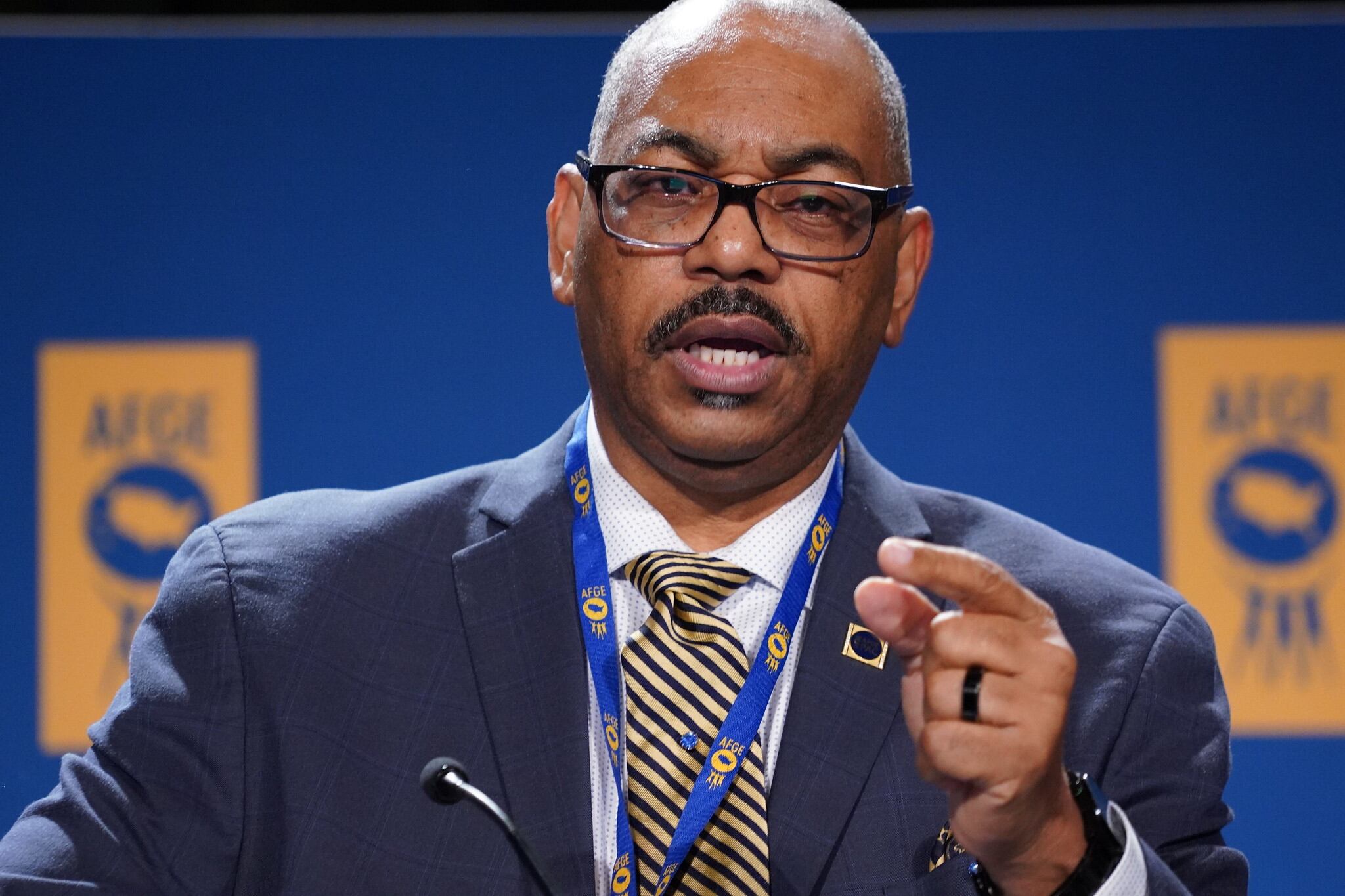Official records from the Office of Management and Budget under former President Donald Trump show that the agency attempted to reclassify not just policymaking staff to at-will employment, but also office managers, IT specialists, statisticians, records officers and administrative assistants, suggesting Schedule F extended beyond the scope of just the most influential positions in government, according to a federal union.
More than 200 pages of records requested and shared with reporters Tuesday by the National Treasury Employees Union, which represents workers at 35 federal agencies, show that in 2020 and 2021, then-OMB Director Russell Vought submitted to the Office of Personnel Management a list of occupations “that involve substantive participation in the advocacy for, development of, or formulation of policy.” Some were high-level positions such as deputy administrator of the U.S. Digital Service and akin to what Trump envisioned under a plan to strip civil servants with influential power of certain employment protections.
But others, the union contends, were merely administrative or clerical in nature and would be commonly found in other agencies. That concerned the union, which surmised based on the sample of documents that Schedule F could’ve included more employees than originally estimated if it had successfully been implemented. Justifications of the positions by OMB include routinely working on high-visibility correspondence, maintaining contacts with “high-level officials,” or having access to Top Secret Materials.
RELATED

“Looking at the OMB list, they stretched the definition of confidential or policy positions to the point of absurdity under these broad definitions,” said Doreen Greenwald, national president of NTEU on Feb. 27 during a press conference following the annual legislative conference in Washington, D.C. “Under these broad definitions tens of thousands of frontline federal employees in every single agency potentially would be swept up, many of them GS-12 and below.”
In a follow-up letter to OMB at the time, OPM approved all but four occupations under Trump’s executive order: a policy analyst, two program examiners and a legislative analyst for the President Management Fellows program.
President Joe Biden rescinded Trump’s EO with his own almost immediately upon taking office, and his administration is currently working to pass legislation in Congress and statutes within the executive branch to prevent Schedule F’s return. OPM expects to issue a final rule this spring reinforcing employment rules as another fortification.
“[Federal employees] need to be protected from the partisan whims of Congress or the White House,” said Sen. Ben Cardin, D-M.D., at the event Tuesday. “Schedule F has to be eliminated.”
Trump, who is running against incumbent Biden for the White House this year, has been joined by other Republican candidates in calling for “debloating” the 2.1 million-large federal bureaucracy. Unions and Democratic lawmakers have treated those attitudes as credible threats of what might happen to the merit-based civil service if members of the right wing take over Congress and the presidency. Trump defeated opponent and former South Carolina Gov. Nikki Haley in her home state’s primary earlier this month. While it’s still early, a Marquette University Law School poll published Feb. 22 shows Trump is the pick of 51% of registered voters.
RELATED

“Schedule F abandons our country’s 140-year commitment to the merit-based civil service by dramatically expanding the role of politics in staffing federal agencies,” NTEU’s Greenwald said. “The big lie is that Schedule F will rid the federal workforce of partisanship when in fact Schedule F will insert politics into a frontline workforce that is currently nonpolitical.”
The Pendleton Act of 1883 sought to do away with the spoils system permanently and is the bedrock for a population of workers whose careers often span multiple presidential administrations. Even today, churn within the workforce after an election isn’t as common at lower levels as it is for senior executives, according to study by the National Bureau of Economic Research.
Still, the union said these long-standing principles stand to be bolstered.
Julie Wilson, NTEU’s general counsel, said the union has been urging federal agencies to codify existing “prohibited personnel practices” into regulations in the same way the IRS, for example, has regulatory language governing how it collects taxes.
“It is unusual to ask for these types of records in the HR environment, but we thought that this was such a big deal that we wanted to go ahead and get agencies thinking about their authorities to do that,” she told reporters.
Wilson also said the union is looking to include “statements of law” in its labor contracts that emphasize the legal justification of an employment protection or, to the contrary, the potential violation inherent in an agency’s decision to fire or hire at will.
The challenge is if Schedule F is resurrected via executive order, that can carry the force of law and not all contractual provisions would necessarily survive it.
“Which is why having OPM adopt regulations is clearly the preferred action,” Wilson said.
Molly Weisner is a staff reporter for Federal Times where she covers labor, policy and contracting pertaining to the government workforce. She made previous stops at USA Today and McClatchy as a digital producer, and worked at The New York Times as a copy editor. Molly majored in journalism at the University of North Carolina at Chapel Hill.
In Other News




